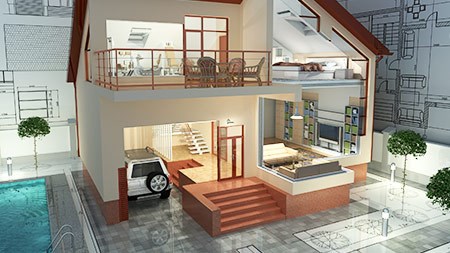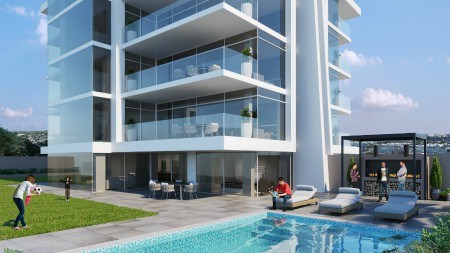With more buyers opting for new properties, developers are moving to fill the gaps in the market as evidenced by the huge number of development properties listed on our website.
In recent years, buyers have shown a strong preference for these development properties and this trend looks set to continue.
As with any property investment, there are pros and cons to choosing a development property over an existing one.
The pros of buying in a development
Financial
You can save a significant amount of money by choosing a development property. You avoid paying transfer duty on the property. VAT is included in the price and transaction costs are paid by the developer. Initially there is only a 10% deposit and the rest of the payment is only due on completion Furthermore, profits from off-plan properties can be free of capital gains tax if the property is sold before completion.
Maintenance
A newly built home will require little to no maintenance for the first few years. No nasty surprises with a burst geyser, faulty electrics or broken gutters. Your weekends will be spent enjoying your new home rather than doing DIY jobs around the house.
Customisation
With a development property you get to choose your property layout, size and finishes. You won’t need to live with someone else’s unfortunate décor choices.
Modernisation
New developments make provisions for the latest technology and enhancement. Things like wiring for your high speed internet connection, alarm systems, sound proofing and insulation are taken into account and added to your property.
Peace of Mind
You have a 5-year major structural defect warranty as well as a 1-year roof leak warranty from a building contractor registered with the National Home Builders Registration Council (NHBRC).
Safety and Security
A big selling point for most new developments is the security they offer. Controlled access, security guards and high walls allow residents to relax while their kids are free to play outside.
Upkeep
Other properties around you are new and well maintained which has a positive effect on the value of your property. In addition, developments will usually have rules regarding building works, gardens, pets and conduct that everyone needs to abide by so that disputes with neighbours are kept to minimum.
So it all sounds fantastic so far but as with anything in life you also need to be savvy and aware of potential issues that could affect your property purchase.
The Cons of Buying in a Development
Plans may be different to finished building
If buying off plan you’re typically shown an artist’s impression of what the property will look like. The finished product may look somewhat different. Also be aware of any buildings not included in the current plans which could affect your views.
Finishes may be different
The fixtures and fittings in the show house on the development may be different to those that you end up getting. Make sure that your contract specifies the fixtures and fittings that you will get and be aware of any clauses that allow the developer to use cheaper substitutes.
The developers reputation
Buy from an established developer with a proven track record. Find out if the developer has completed other projects and check them out. Search online to check if the developer has had any bad press for work on other developments.
Lot Size
New homes are built on smaller lots than older homes. If you’re looking for that big backyard – and lots of space between your house and the next door neighbour’s – you may not find it in a new build.
Building defects
It is a reality that most new buildings will have some defects or “snags”. A reputable developer will ask you to draw up a list of defects and submit it to them within a certain time frame so that they can be attended to.
Some things to look for when drawing up a list of defects include:
• Straightness of the walls
• Taps, shower, bath and plumbing are in working order;
• Cupboards correctly installed;
• Hairline cracks in tiles and tiles neatly laid;
• Stove in working order;
• Silicon sealing in bathrooms and kitchen;
• Plugs in working order;
• Scratches, cracks or marks.
Getting maximum value from your development property
If you’ve weighed up the pros and cons of buying a development property and decided that a new house is for you, here are a couple of final tips to help you get the most value from your property purchase.
Buy Early
In order to maximize your profits through off-plan purchase it is essential to buy early. Developers usually offer great deals at the start of a project and you need to take advantage of that. With steady growth in prices, your investment should also increase in value by the time the development is completed
Buy the best units
The first investors in a development have the opportunity to select the best properties and choice units. They will receive the highest capital appreciation in the shortest time. In addition, the best units command a higher rental income.
Related content:


